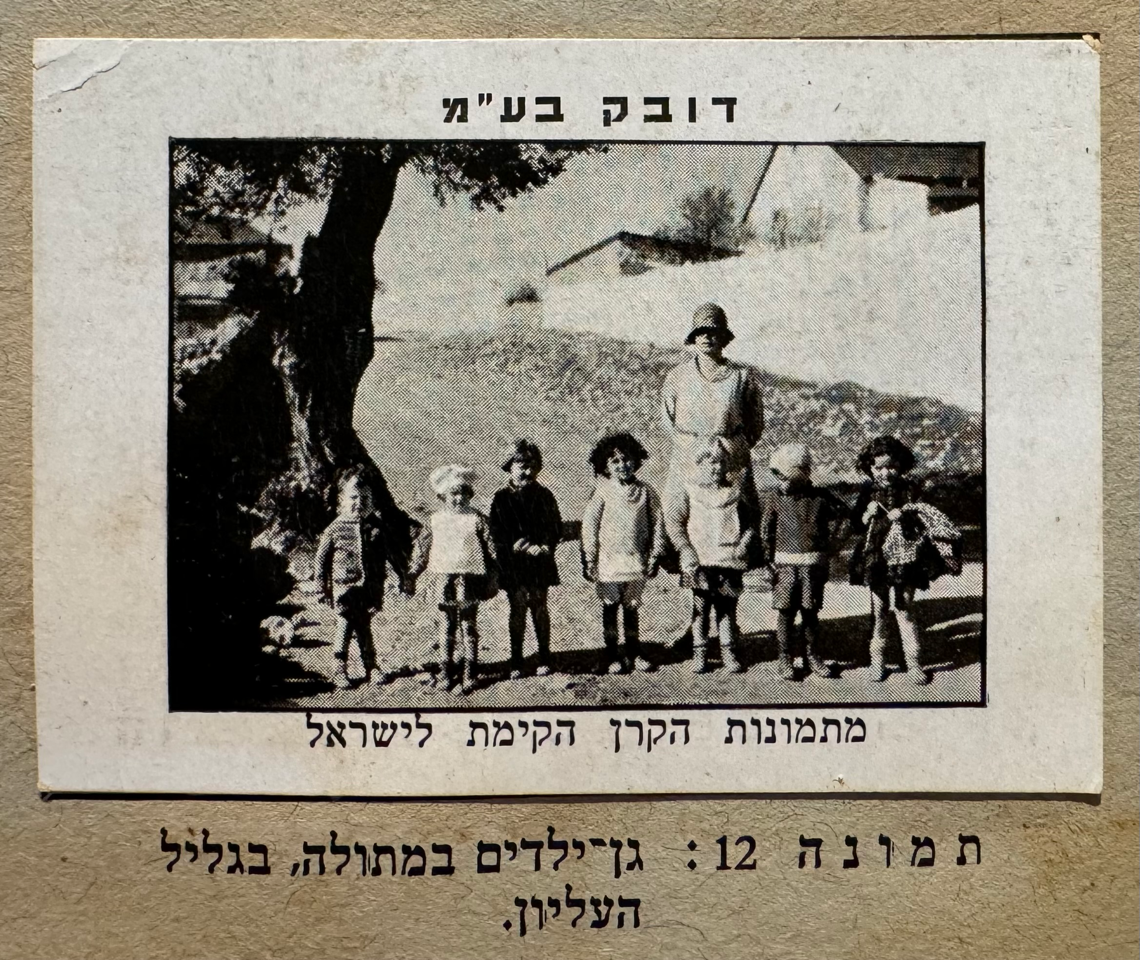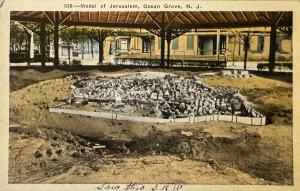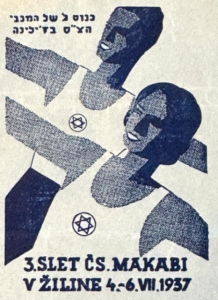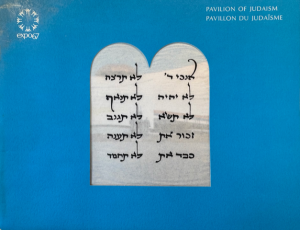Metula is the northernmost town in Israel, with homes literally a stone’s throw from the border with Lebanon—which is fitting, as the origin of the town’s name is al-Mutallah (Arabic for “the lookout”). It was founded as a Jewish settlement in 1896 when the land was purchased by Baron Edmond de Rothschild.
At the end of the First World War, Metula was in the zone of the French military occupation until the British assumed control in 1924. (From 1920 to 1924, Metula residents could vote in the election for the Lebanese parliament.) The site of Metula determined the northern border of the State of Israel. It is surrounded on three sides by Lebanon, with the closest Lebanese village, Killeh, only 150 meters from its residential areas.
This photograph shows a kindergarten in Metula in the Upper Galilee on a trading card issued in Palestine in 1938. It is part of a series of 200 cards distributed by the Dubek Cigarette Company featuring photographs from the archives of the Keren Kayemet LeYisrael (the Jewish National Fund).
Before Oct. 7, 2023, Metula was home to about 2,000 people. The Canada Centre (Merkaz Canada) was one of the town’s major attractions with an Olympic-size ice rink, 10 bowling alleys and other entertainment and sports facilities.
Metula was evacuated after Oct. 7 to protect people from Hezbollah shelling. Residents were scattered all over the country, which has made it nearly impossible to maintain a sense of community. More than 60 percent of its homes have been damaged or completely destroyed by Hezbollah missiles. Streets and municipal infrastructure such as electricity and water have also been damaged, as has the Canada Centre. It will take about four years for the town to be rehabilitated.
At least 30 percent of the population says they will not return, especially families with young children who don’t feel safe enough to live in Israel’s northernmost town.
The recent ceasefire in Lebanon gave the residents of Metula an opportunity to return and visit their homes. Most of them haven’t been home in over a year and did not know the extent of the damage. Even if their houses were not hit directly by a rocket, there is still damage caused by the blasts, rodents that overtook the empty houses, mold and other problems.
Metula is one of the five towns in the Galilee Panhandle that is twinned with communities across Canada under the leadership of Jewish Federations of Canada-UIA. Meytal Novidomsky-Mazeika, a JFC-UIA director in Israel who handles Canada’s relationship with the region, is a longtime resident of Metula—and now an evacuee. She and her young family now face a “very difficult decision,” she says.
“On the one hand, we have only lived in Metula as a family, and we planned on staying there for our entire lives. In addition, we understand the importance of living close to the border. On the other hand, we have small children that we need to protect and give them the safest opportunity to grow up without a constant threat of rockets or, even worse, infiltration. Metula, before this war, was one of the most beautiful places in the whole world. We hope and pray that it can return safely to that in the very near future.”
We also hope that one day soon another photograph of happy children at a Metula kindergarten can be taken.







